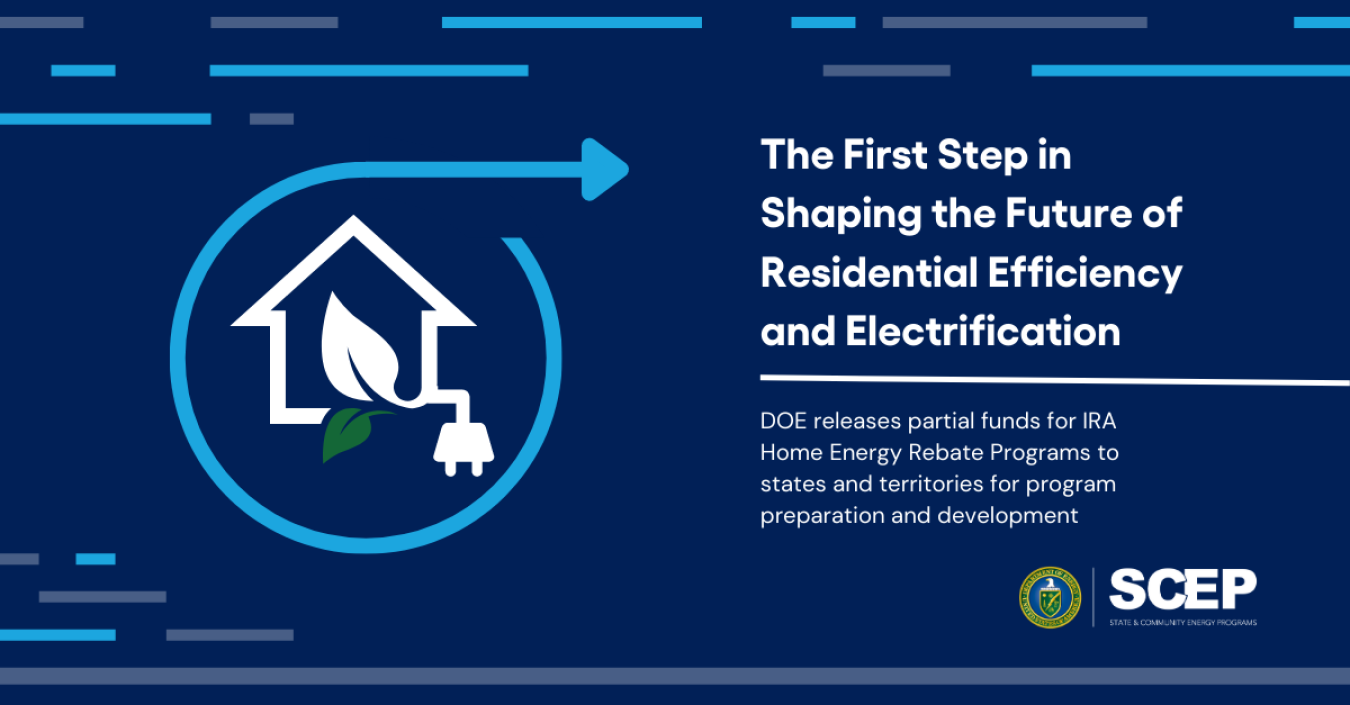
The Biden-Harris Administration is announcing new funding from the U.S. Department of Energy (DOE) to support states as they prepare to administer the upcoming home energy rebate programs authorized under the landmark Inflation Reduction Act (IRA).
On March 23, 2023, the DOE is posting an Administrative and Legal Requirements Document (ALRD) detailing how states may access funds to hire staff, prepare their workforce, and engage with constituents ahead of the forthcoming Home Energy Rebates. Funding set aside for tribal nations will be available following completion of the ongoing tribal consultation process.
Under the ALRD, states are encouraged to apply for up to 2.5%, not to exceed $2.5M, of the total funding from each formula allocation of IRA Sections 50121 and 50122 to support administrative costs such as capacity building, strategic planning, workforce analysis, coordination across programs, and consumer outreach. These activities will help ensure state entities are able to administer successful rebate programs, making it possible for homeowners around the country to access discounts for energy efficient upgrades and retrofits. Review the state allocations for early administrative funds.
The DOE Office of State and Community Energy Programs (SCEP), which is developing program guidance and overseeing implementation, encourages states to take this opportunity to plan program structure and align it with state and local needs and interests.
States, territories and the District of Columbia can use the limited administrative funding for activities to include:
- Building capacity by hiring staff and third-party consultants as needed.
- Strategic planning to conduct analysis and supply chain research.
- Coordinating ways to integrate funds with existing federal or state programs.
- Forging plans for workforce development to include residential contractor training programs or developing strategies to promote equity in workforce programs.
- Identifying effective consumer outreach and communication.
Many households and families are eager to upgrade their home with energy efficient solutions that will reduce energy bills, improve comfort and air quality, and reduce emissions. Although consumers cannot access the funding yet, home energy rebates will be available once states and territories have established their programs.
President Biden’s Inflation Reduction Act (IRA) funded $8.8 billion in Home Energy Rebates, which include two unique rebate programs that states, and tribes will implement:
- The Home Efficiency Rebates will offer $4.3 billion in formula grants to state energy offices to assist in whole-home retrofits, such as insulation and air sealing, that will receive rebates based on their predicted energy savings and total project costs.
- The Home Electrification and Appliance Rebates will offer $4.275 billion in formula grants to state energy offices, as well as $225 million in grants to Indian tribes, to develop and implement discounts for high-efficiency electric home equipment and appliances. These rebates may be applied to the cost of ENERGY STAR equipment such as heat pumps for space conditioning, water heating, and clothes dryers; electric stoves and ovens; as well as electrical panel and wiring upgrades in low- and moderate-income single-family and multi-family homes.
Homeowners are also encouraged to learn more about currently available tax credits for home solar, battery storage, heat pumps and more.
Learn more about the Home Energy Rebates programs.
